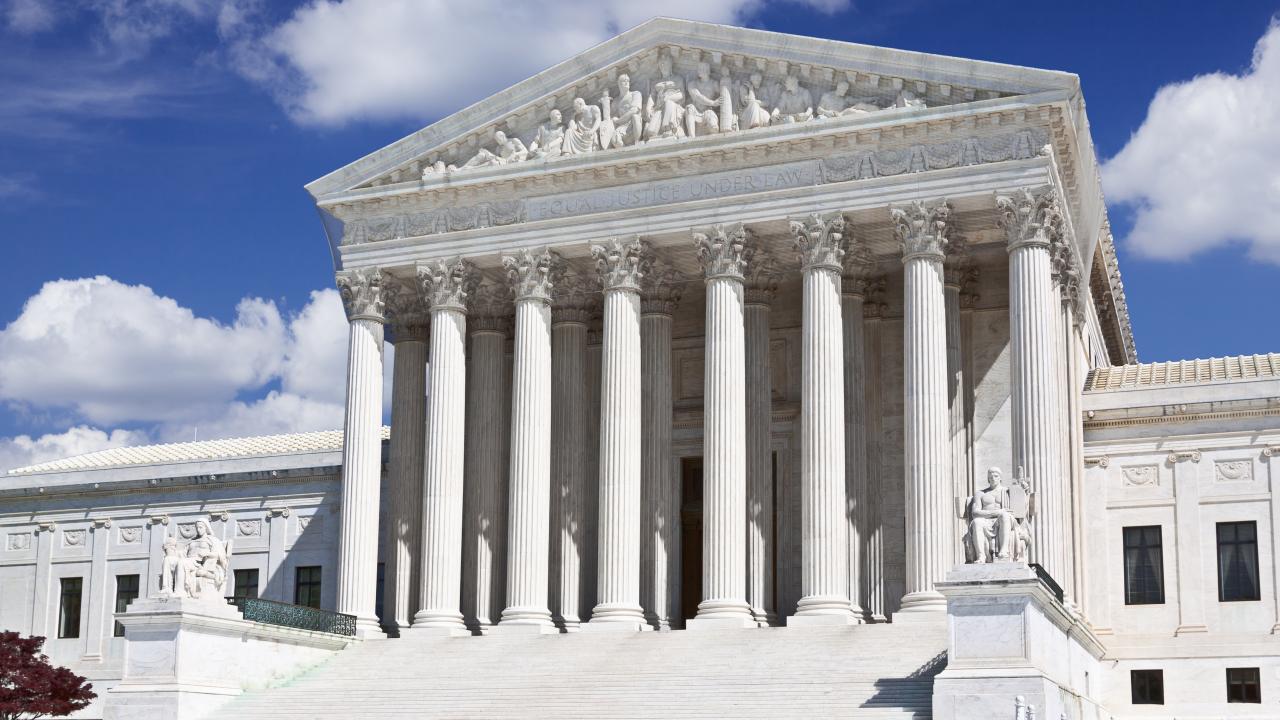Updated June 7, 2018
From cases about bakery owners’ rights to immigrants’ and employees’ rights, UC Davis faculty from the School of Law offer expertise on legal issues pending before the U.S. Supreme Court this session. (Note that this list is updated periodically to reflect cases in which the court has already ruled or declined to rule.)
Union membership and the First Amendment
Aaron Tang is a constitutional law scholar who is closely following Janus v. AFSCME. Currently 22 states allow public sector unions to require public employees who are not union members to pay so-called “agency” fees. The reasoning: non-union members who are public employees benefit from collective bargaining and therefore should contribute financially to the union. If non-members do not pay fees, organized labor often calls this the “free-rider” conundrum. In Janus v. AFSCME a public employee in Illinois, Mark Janus, is arguing that he should not be compelled to pay fees to a union that he is not a member of and that he does not have to fund union activity that he does not support. He argues that this is a violation of his First Amendment rights. If the Supreme Court rules in favor of Janus it could result in significant loses in funding and membership for public sector unions that cover teachers, firefighters and police officers. Contact: aatang@ucdavis.edu, 530-752-1476
The Trump Administration’s Travel Ban
In Hawaii v. Trump the state of Hawaii is challenging the Trump Administration’s ban of groups of citizens entering the United States from several Muslim-majority countries. After facing many legal challenges and court injunctions, the administration has proposed three versions of the travel ban. In December 2017, the U.S. Supreme Court said that the third iteration of the policy could stay in place until it heard arguments and could rule on the case. This was despite a 9th U.S. Circuit Court of Appeals ruling against the current version of the travel ban that limits admission into the country for certain people from Iran, Libya, North Korea, Somalia, Syria, Venezuela, and Yemen. Kevin R. Johnson is dean and Mabie-Apallas professor of public interest law and Chicana/o studies. Johnson is an immigration scholar who regularly contributes to the SCOTUSBlog and can comment on this highly contested case. Contact: Kelley Weiss, kweiss@ucdavis.edu
The First Amendment and free speech
Alan Brownstein, a professor of law and constitutional scholar, is watching Masterpiece Cakeshop Ltd. v. Colorado Civil Rights Commission. The lawsuit questions whether Colorado’s public accommodations law — which prohibits covered persons from withholding goods, services, or facilities from an individual or group based on, among other things, sexual orientation — violates the First Amendment when it is applied against someone who refuses to create custom wedding cakes for same-sex wedding celebrations because doing so would violate the baker’s sincerely held religious beliefs. More information in this Verdict blogpost co-authored by Brownstein. Contact: aebrownstein@ucdavis.edu, 530-752-2586.
Gerrymandering
Professor Christopher S. Elmendorf wrote and submitted an amicus brief on behalf of political scientist Eric McGhee, of the Public Policy Institute of California, in Gill v. Whitford. The brief, filed in support of neither party, explains the measure of partisan bias developed by McGhee and relied upon by the lower court in finding that Wisconsin’s map of state legislative districts was an unconstitutional partisan gerrymander. The district court’s ruling was the first in 30 years to strike down a map of legislative districts as an unconstitutional partisan gerrymander. More in this post co-authored by Elmendorf at Election Law Blog. Contact: cselmendorf@ucdavis.edu, 530-752-5756.
Federal employment law: Discrimination based on sexual orientation
Professor Brian Soucek filed an amicus brief with the U.S. Supreme Court, arguing that it should agree to hear Evans v. Georgia Regional Hospital, a case that asks whether federal employment discrimination law protects against discrimination based on sexual orientation. More information from the School of Law. Contact: bsoucek@ucdavis.edu, 530-752-4932.
Media Resources
Kelley Weiss, UC Davis School of Law, 530-754-7173, kweiss@ucdavis.edu
Karen Nikos-Rose, UC Davis News and Media Relations, 530-219-5472, kmnikos@ucdavis.edu
